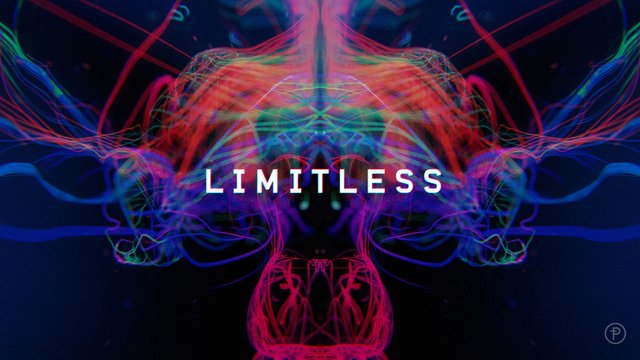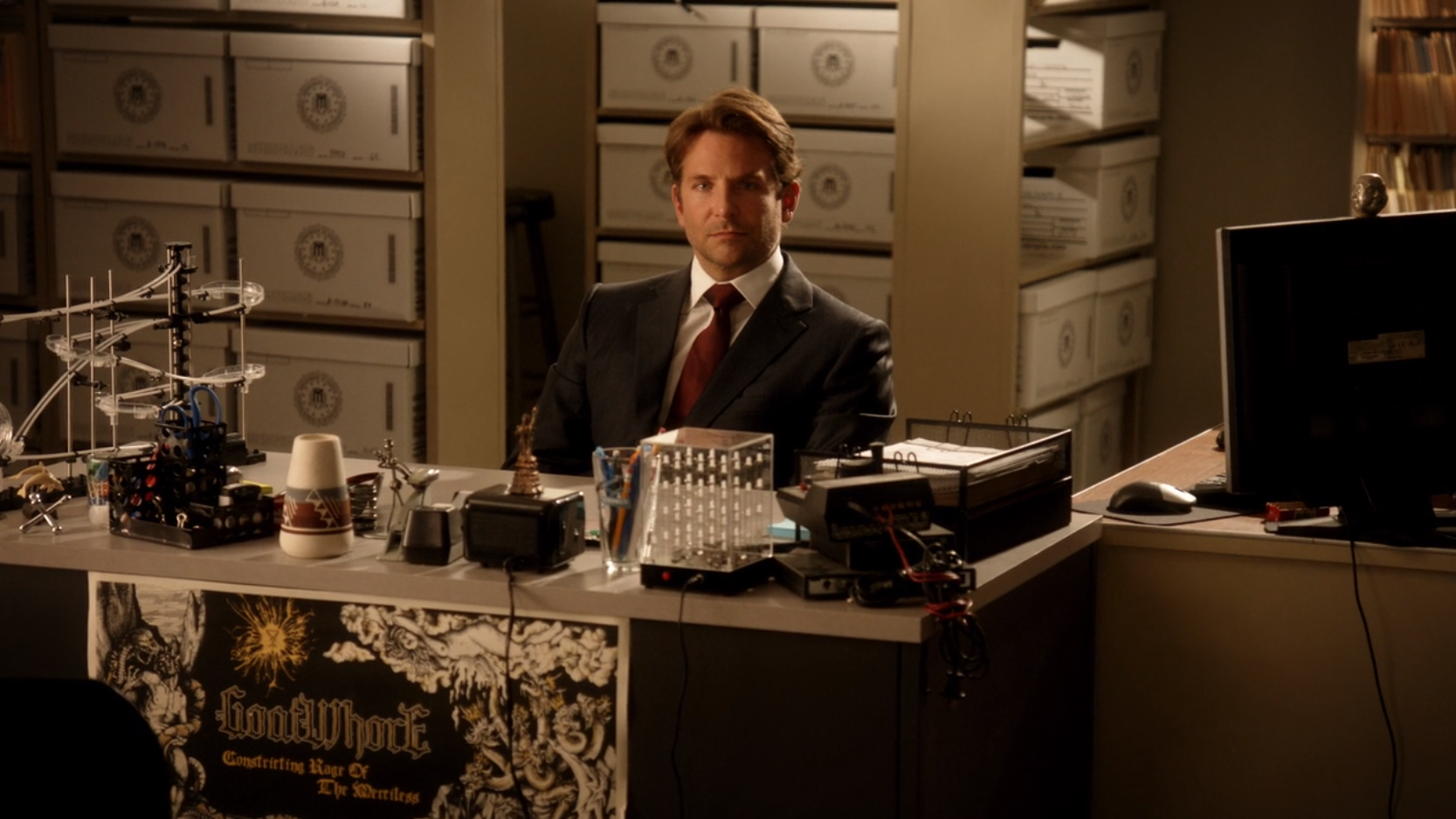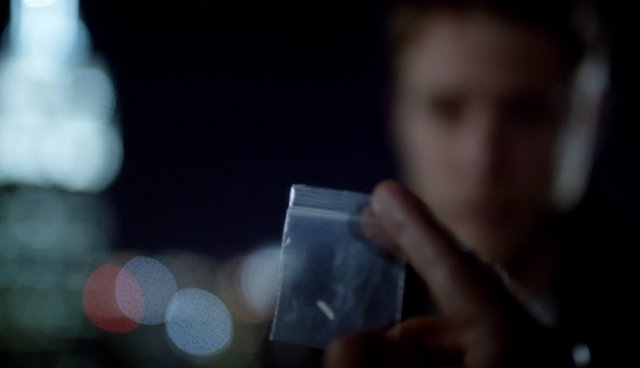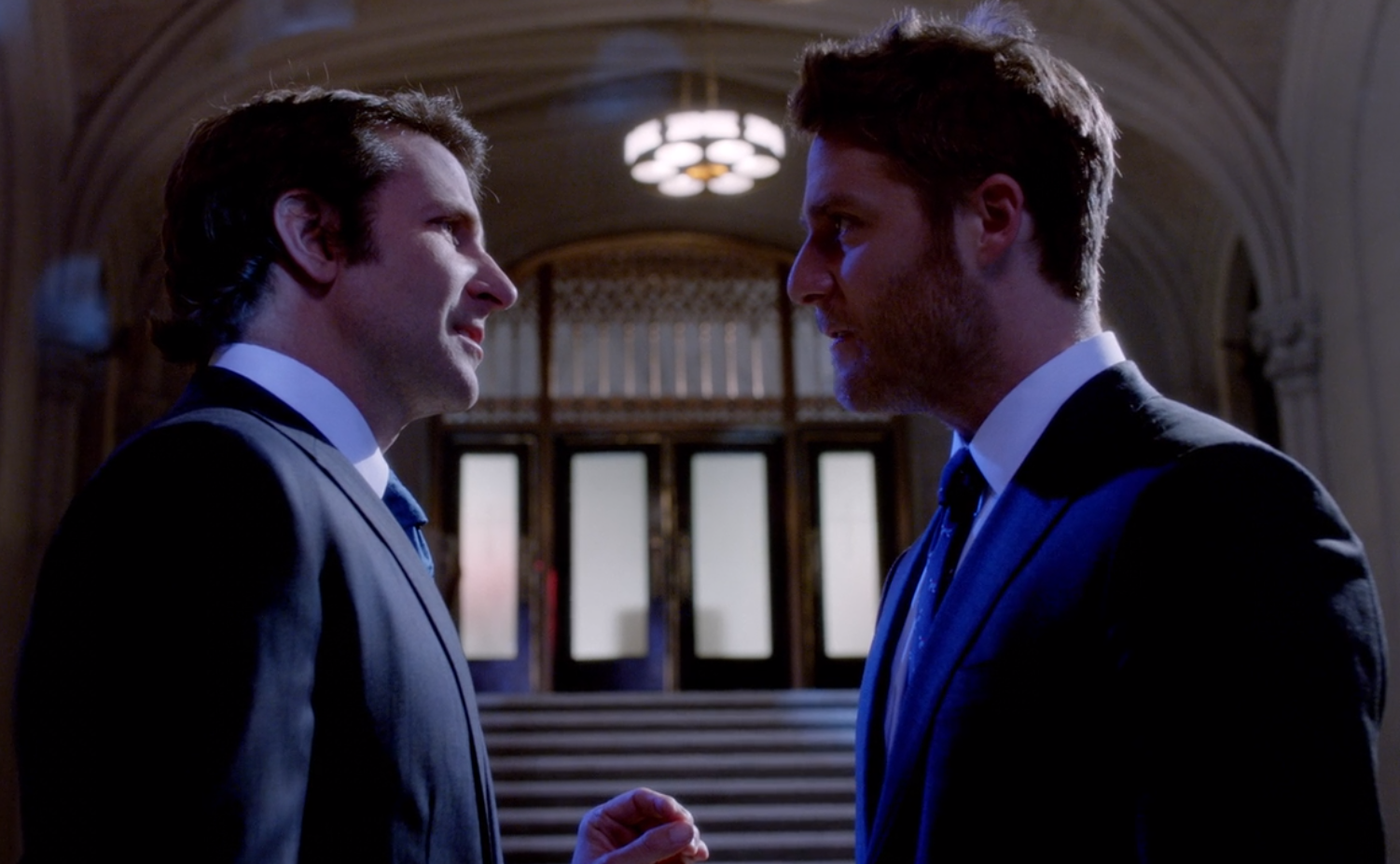Limitless, Intelligence, and Morality
(Advisory: Buckle in, kiddos, we’re goin’ deep. 😊 )
Film: Limitless
Actor: Bradley Cooper
Director: Neil Burger
Released: 2011
Series: Limitless
Actors: Jake McDorman, Jennifer Carpenter, Bradley Cooper, Georgina Haig
Creator: Craig Sweeney
Debut: 2015
Before he became People’s Sexiest Man Alive and the voice of a homicidal raccoon, Bradley Cooper starred with Robert De Niro in the 2011 film Limitless, a film where a failed writer takes an experimental neuro-enhancer called NZT-48 that “gives the user access to 100% of their own brain”, and quickly becomes rich and famous. The film gave Cooper’s career the exposure and push it needed to make him a bankable star, and spun off to a TV series created by Craig Sweeney and produced by Cooper that ran for one season in 2015.
The film and the TV series sparked additional interest in nootropics and neuroenhancers, snake oil pills coming onto internet markets, and Youtube videos claiming to give techniques to give the same effects of NZT, give the consumer access to “100% of their brain” even though the “10% of the brain” idea has long since been disproven. In fact, it’s probably closer to 20%, and that’s only regarding forming memories.
Both the film and series were, however, a meditation on what happens when someone is suddenly granted with vast intelligence far beyond human limits (get the name, yet?), and the effect it will have on their actions, personal philosophy, and morality. While there have been studies linking high intelligence to mental illness, any studies trying to correlate intelligence, whether high or low, with morality and kindness can only conclude that there is no connection. It’s more common supposition that intelligent people tend to overthink their decisions or “think twenty moves ahead”, and while it might be true, there’s no real data to support that idea.
So what does this have to do with Limitless? I’m glad I imagined you asked, because it seems that the leads of both incarnations of Limitless, Eddie/Edward Morra and Brian Finch, represent both sides of this argument. One serves as proof that superintelligence only leads to becoming an ascending supervillain, while the other suggests that intelligence and morality are two separate qualities than can exist working in tandem or independently.
The Pre-Pill Tortured Artist
Both the film and the series chose a struggling artist for their protagonist. Both live in crappy NYC apartments. At first, it seems the only difference is that Eddie Morra (Bradley Cooper) is a blocked writer, and Brian Finch (Jake McDorman) is a failed musician. Brian is in a rock band that’s become a solo project because everyone else left, and he hasn’t written a song in years. Eddie landed a book contract for a science-fiction novel with a large advance and hasn’t written a word (this, not the magic pills, is where Limitless utterly broke suspension of disbelief for me, as agents and publishers want nothing to do with an unpublished writer with no finished manuscript, no matter how good the elevator pitch).
It’s only there that the two are similar. Eddie gets dumped by his girlfriend who’s tired of being his ATM, is estranged from his family where he’s an only child, and is broke. Brian is single, has dinner with his family every weekend where he’s the middle child with three siblings, and is willing to take a temp job if he needs the cash. Eddie steals his grandma’s Percosets to either take himself or sell, while Brian is a regular user of marijuana.
Their “pre-NZT” selves are important, as they’re addressed in the following exchange in the series:
EM: Why are you trying so hard to hold onto the person you were before NZT?
BF: It’s who I am.
EM: Well, it doesn’t have to be. I remember Eddie Morra. He was a terrible writer. And he lacked the self-discipline and awareness to do anything about it. I couldn’t wait to get rid of him and become someone else. But you… We’re different from other people, Brian. We become more different with every pill we take. You don’t have to run from that. You can embrace it.
BF: I don’t want to be someone else.
EM: I think you do. You’re just not willing to admit it yet. You’re on NZT. You’re above the kind of concerns that you’re letting weigh you down. Put them down, walk away. You’ll feel so much lighter. I promise.
BF: (Shakes his head as Morra walks away)
- Limitless (Season 1, Ep. 12, “The Assassination of Eddie Morra”)
Both characters go through a personality change as a result of their exposure to NZT, however, but the end results, are significantly different.
The Knowledge High
Both the film and series take the time to accentuate the “trippiness” of the first dose of NZT. Senses are heightened, perfect recall is no sweat, and even muscle memory is enhanced. Both Brian and Eddie at first revel in the rush, the knowledge that’s suddenly at their fingertips. “Your brain is a miracle, but it’s not efficient,” as Brian says in “Pilot”, and Eddie enjoys suddenly knowing the context of everything in eyesight. Brian is faced with a daunting temp job, Eddie’s faced with getting evicted from his apartment by his landlord’s young wife. Brian uses his sudden hyper-intelligence to reorganize a company roster by risk of sexual harassment, while Eddie snidely runs through his sudden acuity in his head versus the skill of a beginning law student, and ends with “she didn’t have a chance” before the film jumps to those two having sex. Brian, when sat across from a woman about to break up with her boyfriend, offers her credit for his new system and advises her to climb the corporate ladder until she’s on the board where she clearly belongs, and they don’t have sex afterward. The only callback is in the finale, where she returns to politely turn down an offer from Brian, because thanks to him her skills are now unaffordable to the government.
It’s a distinct difference between the two and how they choose to employ the effects of NZT.
Eddie’s instincts are to clean his apartment, work on his novel, and sleep with his landlord’s wife. Afterward, once he has access to more, his activities remain primarily self-interested, mostly self-improvement, but utilizing his intelligence for his own benefit.
Brian performs on a guitar for the joy of it, plays chess with 9 people at once, helps a hot dog vendor rebrand, and then drops everything to research how to help his father with medical issues.
Eddie’s actions are primarily self-interested, while Brian’s are generally altruistic, or intended to help others. Immediately after coming down from NZT, Eddie soon begins seeking a new source, while Brian doesn’t seek more until he learns that his father’s life is once again in danger and feels that only another pill will help him. In both the film and the series, both Eddie and Brian become persons of interest in a murder (two murders, in Eddie’s case), but while Eddie initially cooperates with the police, it’s only to keep his stash of NZT hidden, and he eventually hires a high-priced lawyer to get him off with no explanation of whether he committed murder or not. Brian, on the other hand, runs from law enforcement to seek the real killer and prove his innocence while still being able to help his father. It's this difference that explores their philosophies.
Morra’s Enlightened Self-Interest
It’s easy to consider Edward Morra a pragmatist at first glance. He believes that with NZT, he can change the world for the better, and doing so will necessitate certain “gray area” rationalizations to accomplish them. He lays out his plan that he’s running for the US Senate at the end of the film, and in the series, he announces his run for President of the United States. Pragmatism is, simply put, making decisions based on what has the best chance of working. It’s shown in the following exchange between Edward Morra and Brian Finch:
EM: All you’ve ever seen is the ugly side of what we do, but there’s so much more, Brian. (Holds up a small bag with a grain of rice inside.
BF: There’s rice?
EM: This rice contains a complete nutritional profile. Everything the human body needs. It can grow in the harshest environments. Places we need it the most. With a little more research, this rice could feed the entire world.
BF: I don’t understand. Why can’t you tell anyone about it? I mean, if that’s true, why aren’t you shouting it from the rooftops?
EM: Because people won’t want it. I make an announcement. Lobbyists bring it to action. People rave over GMO’s and it’s buried. Science can’t change the world on it’s own. The world needs to be willing to change. And it takes leaders. Leaders who are willing to chip away at the obstacles, cut through the noise, and play the game.
- Limitless (Season 1, Ep. 6, “Side Effects May Include…”)
It’s Morra’s supposed pragmatism that prevents him from announcing the hunger-solving rice, already discarding it as he’s already thought through the likely course of action once the rice is announced. Since it won’t likely work, he either refuses to announce, or holds it back, knowing what that rice could provide. However, it also shows Morra’s cynicism for those who aren’t on NZT like himself. In this scene, he sees himself as a possible partner or mentor to Brian, but everyone else is too foolish to recognize a good thing when they see it. Because he’s on NZT, Morra sees himself as smarter, and therefore better, than everyone else, a miffed caretaker who sees himself as the only one who can wrangle the pack of unruly children that is humanity.
It’s from this point on that Morra is presented differently by the series. Before, he was shown in bright colors, pleasant music in the background. However, in the following exchange, after learning that his subordinate, Sands, has gone rogue, Morra is shown in dim light, darker tones, and somewhat foreboding and sinister music in the background.
EM: Does this look straight?
BF: You just told me that Sands is pulling together a team of super villains and you’re asking if your tie knot is straight?
EM: Brian, I’m about to give a speech that’s gonna catapult me to the front of the race. It’s gonna be beautiful. Seriously. You should stay and watch. And you know what? It’ll be fun. Who doesn’t like a standing ovation? But to be honest, I’m thinking so far beyond the Presidency right now, you can’t even imagine.
BF: Well, you should be thinking about the fact that Sands and his people around going to be coming after you and me.
EM: They’ll have a plan and it won’t be small. And it’ll be hard for you, but you’re gonna be okay. Let Sands and his people do their thing. This fight? It’s not about who’s gonna control this world. It’s about who’s gonna build the next one.
- Limitless (Season 1, Ep. 19, “A Dog’s Breakfast”)
It’s this exchange where Morra reveals his “chessmaster mentality,” thinking “so far beyond” that no one else can possibly understand. It runs on the perception that he can think 10, 20, 50 moves ahead because he “knows” how society will react to his actions based on what he understands about psychology or sociology. It feeds into his arrogance that he can’t be outsmarted or defeated because he assumes that everything will go exactly to plan. In this mentality, people aren’t people anymore, just pieces to be shuffled around the board as he moves society into checkmate, and he feels no remorse, because as he states, he’s “above those kind of concerns”. Morra’s use of NZT amplifies his belief and philosophy that life and humanity are math problems, exceedingly complex math problems, but the kind of math problems he has the resources to solve. It’s supposed that becoming President of the United States isn’t even his goal, that it’s simply a means to an end that Morra never really describes. It harkens back to the film, where Eddie states what while on NZT, “Only problem? If I wasn’t moving forward, it felt like I was going to explode.” (Limitless, 2011) It implies that Morra still has this mentality not even five years later, pushing higher and higher in society for more power, more control, as long as it means that he’s moving forward.
An attitude such as that underlines the truth of Morra’s core philosophy, that of enlightened self-interest. His actions may seem for the good of all around him, but in the end are only enacted to enhance his power, wealth, reputation, and social standing, and if humanity benefits, it’s a side-effect, not an intention. If anything, Morra is the Machiavellian realist to Brian Finch, who embraces the opposing philosophy.
Brian’s Practical Idealist
When Brian first uses NZT, he spends the majority of his time helping others in a personal and larger sense with no other justification than wanting to help. His decision to utilize his NZT high to aid his ailing father can be claimed as enlightened self-interest, but the end goal was to help an individual other than himself. It’s laid out in an almost writerly fashion midseason, when Brian’s potential love interest reveals what she learned about him through observation.
“Classic middle child, which explains your need for approval. On the other hand, your fears of living up to your successful siblings caused you to rebel and reject mainstream success. Resorbed Twin. You really thought that was a reasonable band name? The most important thing I learned is that you grew up surrounded by love and support, which suggests a strong moral framework.” – Piper Baird, Limitless, Season 1, Ep. 12, “The Assassination of Eddie Morra”
It’s also, when compared to Edward Morra, a reason to argue nature vs. nurture. The film implies that Eddie had always been self-interested, while the series presents the case that Brian’s morality is largely a result of his family’s love and support, as well as his father being a lawyer for the ACLU. It also explores the times that Brian becomes aware of the effects that NZT is having on his personality and moral framework. In “Personality Crisis”, he finds that he’s been leaving advice/orders for himself for when he’s not on NZT to prevent any actions that might bring him harm. It’s further discussed in the late-season episode, “Bezgranichnyy” in the following exchange between Brian and Piper, with Piper taking the more utilitarian outlook regarding NZT.
BF: Why is it every time someone takes enough NZT, they’re always talking about the greater good?
PB: Because the pills give you perspective.
BF: And you don’t think I have that.
PB: Maybe you start from a different baseline than the rest of us.
BF: Pretty sure you just called me dumb, but I’m going to ignore that. Food for thought. What if I’m right, and you’re wrong? ‘Cause you know who you sound like when you talk about sacrificing good things? Things that are real right now on the altar of some hypothetical better future? You sound like him. You sound like Morra.
- Limitless (Season 1, Ep. 18, “Bezgranichnyy”)
Piper’s outlook regarding NZT is simple: It will enhance humanity and save lives. Unlike Morra, she wants NZT to be given to the world, but in order to do that, she’s willing to sacrifice what’s necessary to achieve her goal. The difference between Morra and Piper is that she has a clear goal and an endgame in mind, while Morra’s only goal is retaining power and gaining more of it. Brian’s outlook, however, is that NZT is simply a highly desirable tool that allows the user to aid humanity on a personal level. While his work with the FBI is only because of a plea agreement, he mentions several times over the course of the series that he likes helping the cause of justice and aiding those who are suffering. When it seems like he’s acting selfishly, such as gambling, it’s soon revealed that any winnings are immediately utilized to help solve a case or help others escape suffering. That Piper subtly implies that this is because Brian has a lower initial IQ than her own shows how NZT can heighten a user’s arrogance as it was shown above that there’s no correlation between intelligence and morality.
What keeps Brian from being a pure idealist is the knowledge that he must occasionally do things his morals disagree with either for self-preservation or preventing further loss of life. This is shown in the episode, “Personality Crisis” where Brian has to lie, flagrantly, to a person of interest to get him to turn on his brother and prevent a bomb from being set in New York City, and also in “Brian Finch’s Black Op”, a tribute to Ferris Bueller’s Day Off, where Brian has to, in order to save his own life, manipulate a man while on NZT into violently killing two people. He’s able to rationalize, but unlike a realist or utilitarian, he feels remorse afterward, and it affects his actions thereafter. This reflects Brian’s lean toward practical idealism, as he refuses to discard his ideals for the sake of expediency, but also is willing to temporarily compromise himself in order to achieve those ideals. It’s that knowledge of the way the world works that keeps him from indulging in moralist naivete, but still working to improve the system from within.
It’s Brian’s adherence to his idealistic philosophy that proves him worthy at the conclusion of the series, which implies he’ll be immune to NZT’s side effects for the rest of his life, which he chooses to employ by furthering the cause of justice at the FBI, while still retaining his own personality.
Wrapping Up
Limitless was a series and film that delved into what sort of effect intelligence has on moral philosophy, and if morals fall by the wayside. What it succeeded in accomplishing was that a magical super-intelligence pill would simply intensify the moral philosophy that the user truly had buried under social mores and niceties, and whether that “real self” was inherently selfish, utilitarian, idealistic, altruistic, or any others was dependent on the person’s upbringing, moral and emotional development, and privilege. NZT tended to make people think on a larger scale, look beyond, and in the end, only Brian is still standing because he could see the forest and the trees.
Sources:
Limitless. Directed by Neil Burger, performances by Bradley Cooper, Relativity. 2011.
Craig Sweeny, creator. Limitless. K/O Paper Products and CBS Television Studios, 2015.
Screenshots taken from Netflix, videos from Youtube.




Hello @vaughndemont, thank you for sharing this creative work! We just stopped by to say that you've been upvoted by the @creativecrypto magazine. The Creative Crypto is all about art on the blockchain and learning from creatives like you. Looking forward to crossing paths again soon. Steem on!
Thanks muchly for the upvote! :)